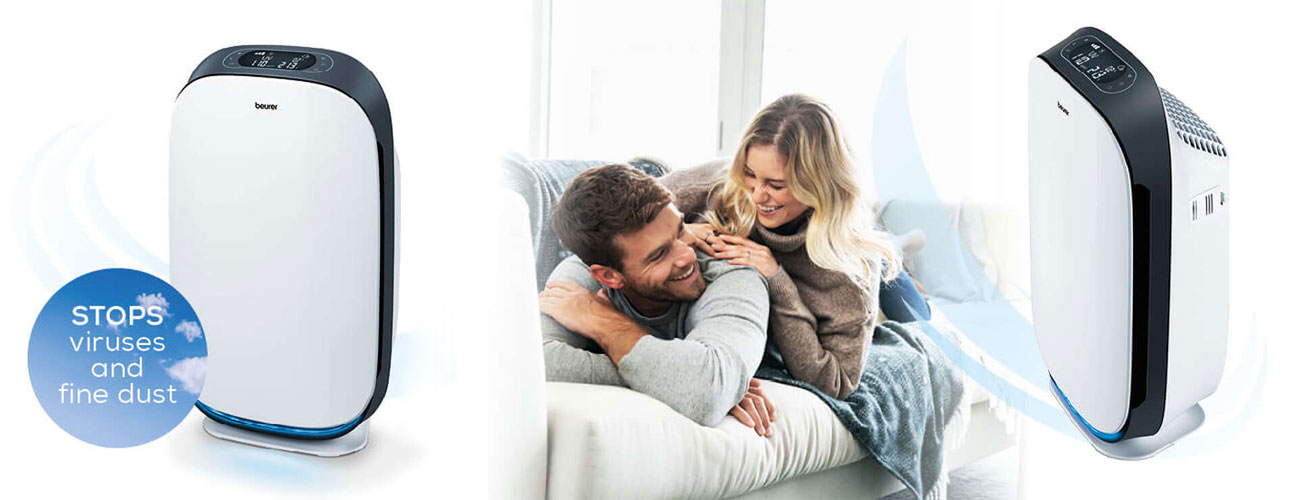A Closer Look: How Air Purifiers Effectively Improve Air Quality at Home
Sep 20, 2023Do you ever find yourself sneezing like a maniac in your home when you're not sick or have any allergies? The reason for that is your home's air quality.
A study posted by National Center for Biotechnology Information (NCBI) on Air Pollution and Indoor Settings states that Household Air Pollution (HAP) is a global environmental health problem. Bad indoor air quality can have a big impact on the health of seniors, adults, and children.
What's Wrong with My Home's Air Quality?
There are a million particles in your home that you cannot see. Depending on your lifestyle and geographical location, you may be subject to many of them in your house. These include:
- Allergens like pollen
- Dust mites
- Pet dander
- Airborne bacteria and viruses'
- Mold and mildew spores
- Cooking fumes
- Insect allergens
- Indoor airborne fibers
- Humidity particles, and what not.
All of this can contribute to having poor indoor air quality. And this can have both short-term and long-term effects on your health. Things like respiratory problems, heart diseases, cancer, and neurological issues can pop up out of the blue and you wonder what went wrong?
As more people become aware of the air quality concerns in their area, more homes are trying to cleanse their living space. While there are options to save yourself from bad air at home, like ventilating every day and being mindful of cleanliness. However, air purifiers come up to be the best solution for improved air quality.
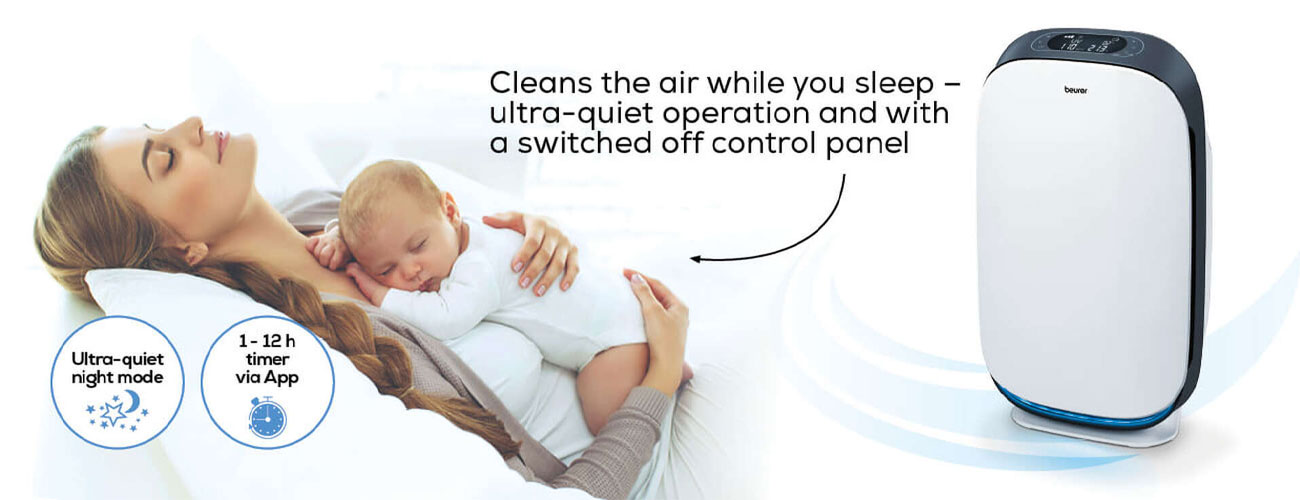
How Does an Air Purifier Work?
It is pretty self-explanatory. Air purifiers work to remove impurities from your home. It works by sucking in the air with the help of a fan and filtering out pollutants. The clean air is then released back into your home.
Does the Air Purifier Really Work?
Yes, air purifiers do really work. This mechanism is effective in taking out multiple particles. Not only can it help with particles but also airborne diseases and viruses. Beurer's advanced models like LR 500 use UV technology to even kill bacteria and viruses in your home. Recent studies in the journal of JAMA Network Open have shown that air purifiers with HEPA filter technology can minimize the risk of COVID-19 germs in indoor spaces. Several other studies highlight that the use of air purifiers in homes, classrooms, and offices can be valuable in improving overall air quality.
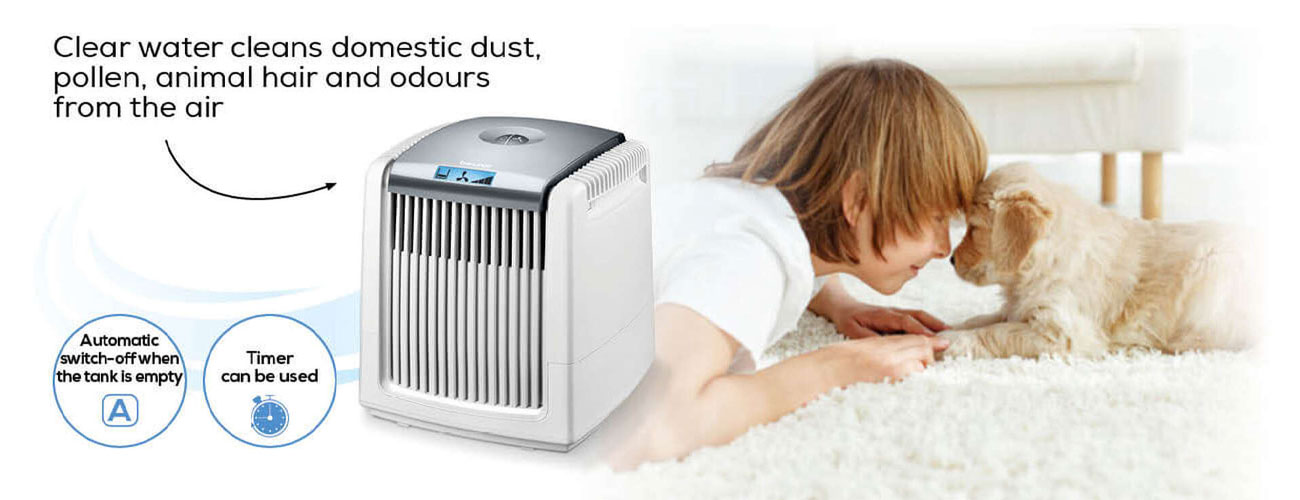
Is Sleeping with Air Purifier Good?
Sleeping with an air purifier is good for your health. If you are someone suffering with pollen, asthma, allergies, or any other respiratory problems then air purifiers is what you need in life.
A study published on the National Center of Biotechnology Information (NCBI), on the Effects of Air Purifiers on Patients with Allergic Rhinitis concluded that after 6 weeks of using an air purifier with HEPA filters significantly helped minimize the patients' use of medicine. Another study by NCBI on Air Pollution and Indoor Settings concluded that long term use of air purifiers reduced asthma and other respiratory medical conditions like heart diseases and blood pressure.
What are the Disadvantages of Air Purifier?
Air purifiers have no disadvantages for your health, but they can be expensive. The price can be different depending on the type of filtration system. Another disadvantage of air purifiers is that they require maintenance and filter change. This also depends on the type of air purifier you choose and how the air quality is around you. The worse it is, the more you'll need to change filters. Beurer air purifier technology comes with filter change indicator.
Some purifiers can be noisy, which can irritate when you are asleep. There are models that come with zero noise, like almost all of Beurer's air purifiers come with a night mode. Lastly, another potentially bad thing is that they can emit ozone, which can irritate your lungs. However, new models are mindful in their features to eliminate this factor. Beurer air purifiers do not emit ozone because of HEPA filters. These filters do not product ozone. And Beurer is certified by California Air Resources Board (CARB), meaning they meet the standards for ozone emissions. This is why it is important you thoroughly investigate what you are buying.
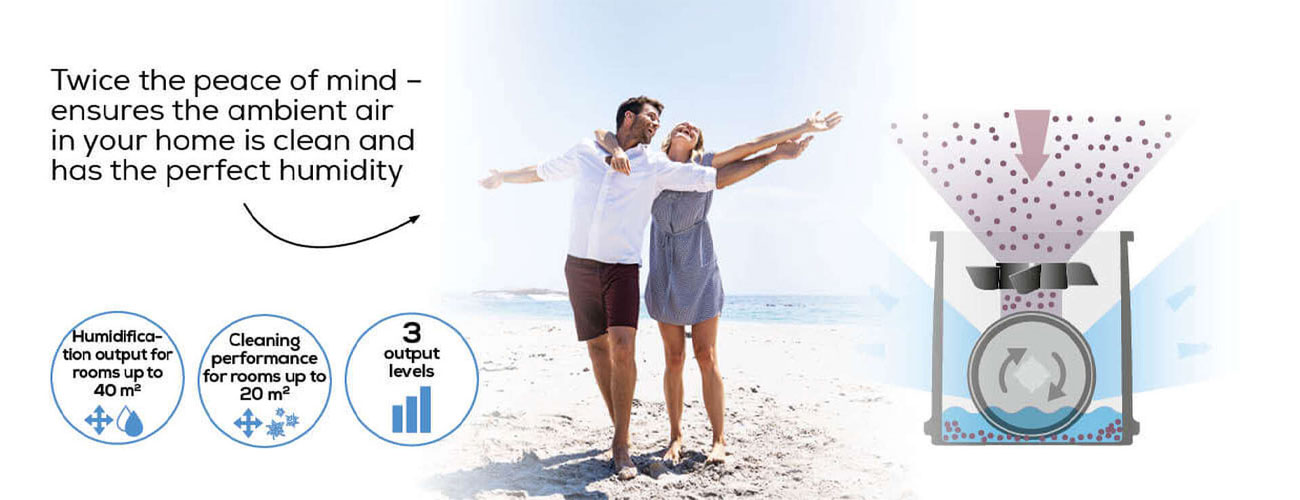
Which Air Purifier Should You Choose?
Depending on your need and budget, Beurer brings air purifiers in different price ranges. The best part is that you get high-end technology in all prices. The features of filtration can vary.
In price range of Rs. 40,000 to Rs, 65,000, you can find a 3 layer filter system plus with night mode. Beurer air purifier LR 210, 220, and 310 use HEPA filter and come with automatic switch off. You can time it as you need. If you don't want your air purifier to work during the day, you can set the timer as per your time. All three models come with a filter change indicator. This way, you will never be caught off guard. These also come with timer functions. In case you don't want air purifier on for long, you can set it to work 2, 4, or 8 hours.
However, LR 310 is the most advanced one at Rs. 65,000 because it comes with PM 2.5 sensors and UV light function. A PM 2.5 sensor can detect dust and automatically adjust its fan speed to filter these particles. A UV light function uses ultraviolet light technology to kill bacteria, viruses, and other germs.
Advanced systems like LR 400, LR 401, and LR 500 include all of the above, turbo mode, and app control. These are also more suitable for bigger rooms. These systems come in the price range of Rs. 80,000 to Rs. 115,000.
Does Air Purifier Size Matter?
The size of your purifier matters because if you buy a smaller one, it won't work well in a big room. For the right size, know the square footage of your room. The recommended room size for LR 210 is up to 26 m². LR 220 is ideal for room size of 37 m² and LR 310 for up to 54 m².
LR 400 and 401 are perfect for room sizes of 69 m², while LR 500 is for up to size 106 m².
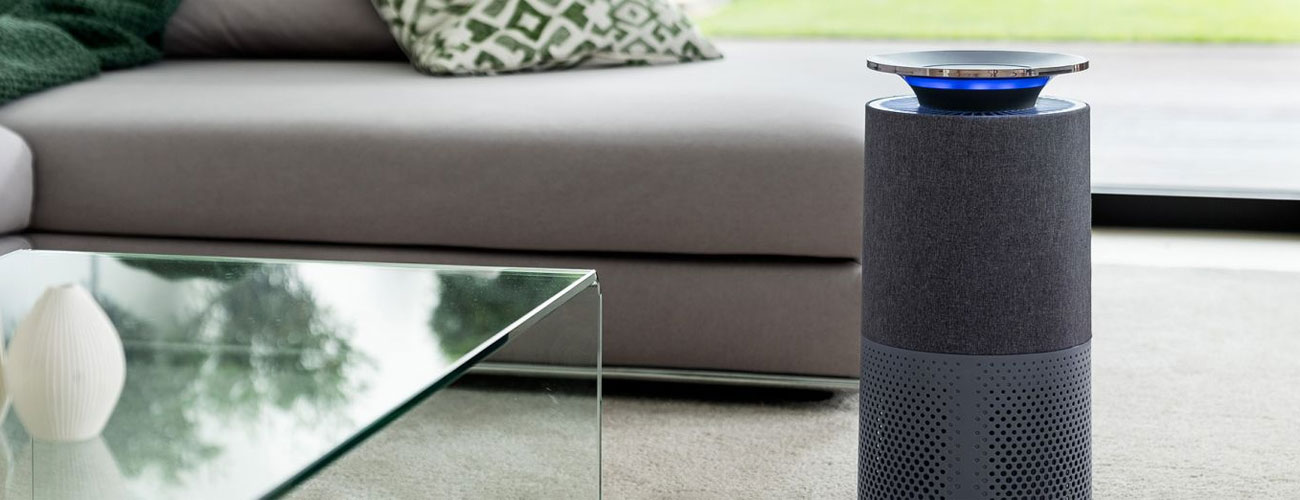
Bottom Line
It is important to remember that air purifiers are no cure for your asthma and allergies. Air purifiers can help support to make the situation better for you. With long term use, you can expect healthier living conditions and a possible reduction in your respiratory problems. Even though, studies heavily show that air purifiers are good for health and can help improve the air quality of your home. Health and well-being is not just a tagline for us at Beurer. Our work is to really instill this in your homes for a better and healthier future.




